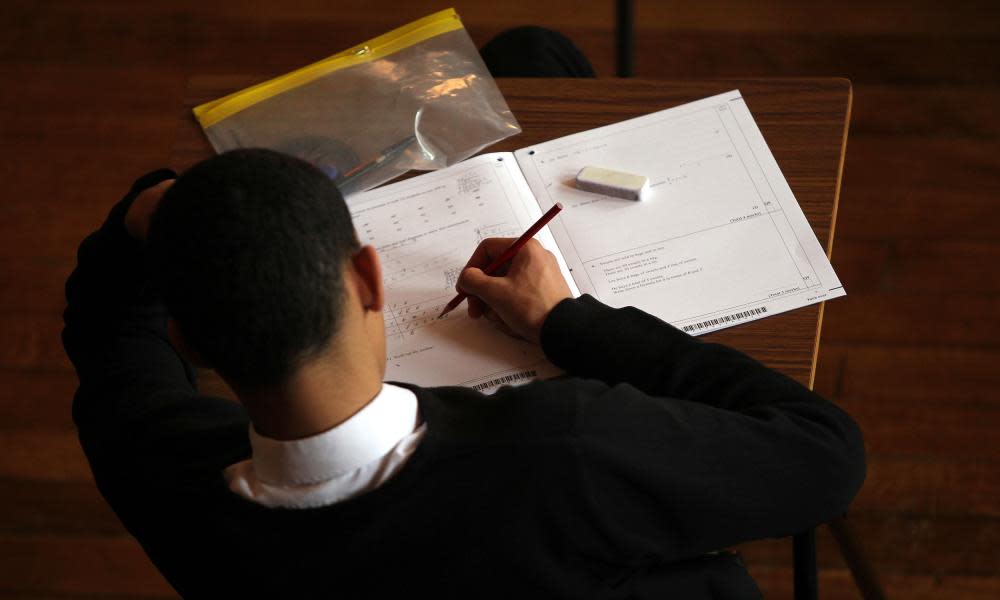GCSE standard pass not enough to match top nations, says thinktank

Maths and English scores among 16-year-olds in England need to exceed the government’s “standard pass” mark in order to match the best educated countries overseas, a thinktank headed by the former education minister David Laws has said.
As hundreds of thousands of teenagers await their GCSE results, due on Thursday, a report by the Education Policy Institute (EPI) urges the Department for Education to set its sights higher in order to catch up with the likes of Singapore and Canada.
According to the EPI’s calculations, 96,000 additional pupils out of around 500,000 would have to get top grades in maths and 60,000 low-performing pupils would need to achieve a good pass in order to move England into the top bracket of international performers.
New, tougher GCSE exams in maths and English were sat for the first time this summer, and the results will be presented using a new 9 to 1 scale in which 9 is the top score.
The Department for Education (DfE) has said a 4 on the new scale will equate to a C under the old system, and defines 4 as a “standard pass” and 5 as a “strong pass” – meaning pupils with a 4 will not resit maths and English GCSEs as required by the government.
Currently, those who get a D or below are required to resit maths and English GCSEs while they remain in education.
The EPI argues that 4 sets a standard too low to match the best international competitors including Ireland, Hong Kong and Finland in reading and Hong Kong, Taiwan and Japan in maths.
The EPI’s analysis of the new gradings suggests that the UK’s top five rivals would average a 5.4 GCSE score in maths, compared with 4.7 in England.
“In certain subjects such as maths, England needs both to significantly raise the number of top performers and almost halve the number of low performers if it is to compete with the world’s best,” said Laws, who served as education minister in the coalition government until 2015.
“Our analysis suggests that the DfE is right to be refocusing our education system on students achieving the new ‘strong pass’ of a grade 5. The old C grade is not an adequate national aspiration if England wants to compete with top education nations.”
The report also says Wales has further to go to improve its performance, with Laws describing its performance at GCSE as “shockingly bad by international standards”.
The new grades were introduced by Ofqual, the exam regulator in England, to mark a clear break with the previous exams. The new GCSEs feature little or no coursework, meaning that a pupil’s grade rests more on the final exams. The course content is also more demanding, with GCSE maths now requiring pupils to recall key formulae and offer clear mathematical arguments in answers.
In English language, pupils are expected to have read a greater range of challenging texts, and to display good spelling, punctuation and grammar. Pupils are no longer allowed to bring texts into the English exam.
The new grades will better separate the very top performers, with three grades – 7, 8 and 9 – replacing A and A*. Only a relatively small proportion of pupils – perhaps 2% – are expected to attain the highest grade of 9.
This year’s entries show a rise in the number of pupils taking English literature, as schools seek to exploit a league table boost in England that places double weighting on a pupil’s results if they sit both English language and literature exams.
Next year the new-style exams will be rolled out in several other subjects, including history, sciences and some modern foreign languages.

 Yahoo News
Yahoo News 
